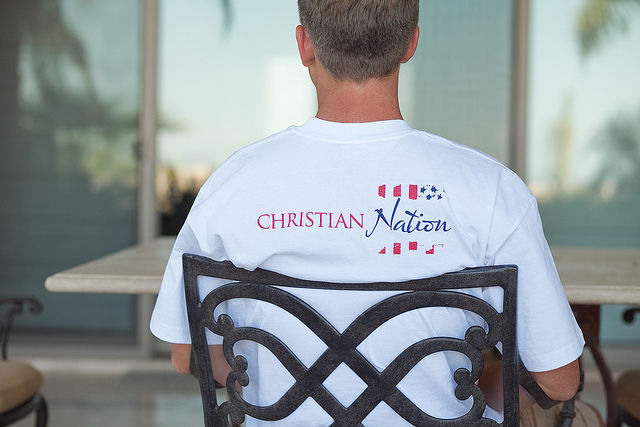
It’s been well documented that religion played an important role in the 2016 presidential election, as well as recent state elections. ThinkProgress.org recently contributed a new analysis of this relationship, highlighting preliminary research from a number of sociologists on the role of “Christian nationalism” in President Trump’s victory. Their findings indicate that the belief that America is a Christian nation may both predict support for Trump and be connected to intolerant views of other groups.
Sociologists Andrew Whitehead, Samuel Perry, and Joseph Baker found that Christian nationalism was “strongly and positively associated with voting for Trump,” and they emphasized that Christian nationalism is not simply another measure of religiosity. Whitehead told ThinkProgress,
“For this study, when we look at a lot of the normal ways we measure religiosity, at the end of the day, none of them really predict a vote for Trump except Christian nationalism. It didn’t matter if you were evangelical or mainline [Christian], it didn’t matter if you went to church a lot or a little, what mattered was whether you think America is a Christian nation.”
Whitehead notes that an important part of this research regards findings about the ways Christian nationalism interacts with other ideologies, and ThinkProgress reached out to sociologist Penny Edgell for further development of this connection. Edgell’s ongoing work with Evan Stewart and Jack Delehanty indicates that support for “public religious expression,” a variable that measures the belief that religion should be an integral part of public life and deliberation, is associated with intolerance against a variety of groups. Edgell emphasized the need for more analysis of white Christian nationalism, especially its role in propagating ideologies like Islamophobia and xenophobia. She told ThinkProgress,
“Certain white Christian institutions house and foster and bundle these attitudes all together, and link them to politics in systematic ways.”

Comments 1
agen togel terpercaya — January 19, 2018
very nice